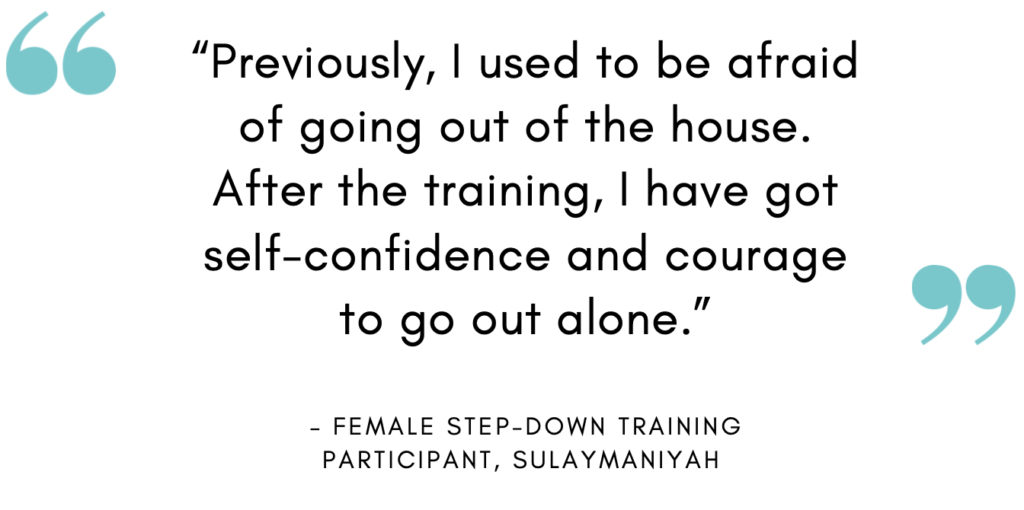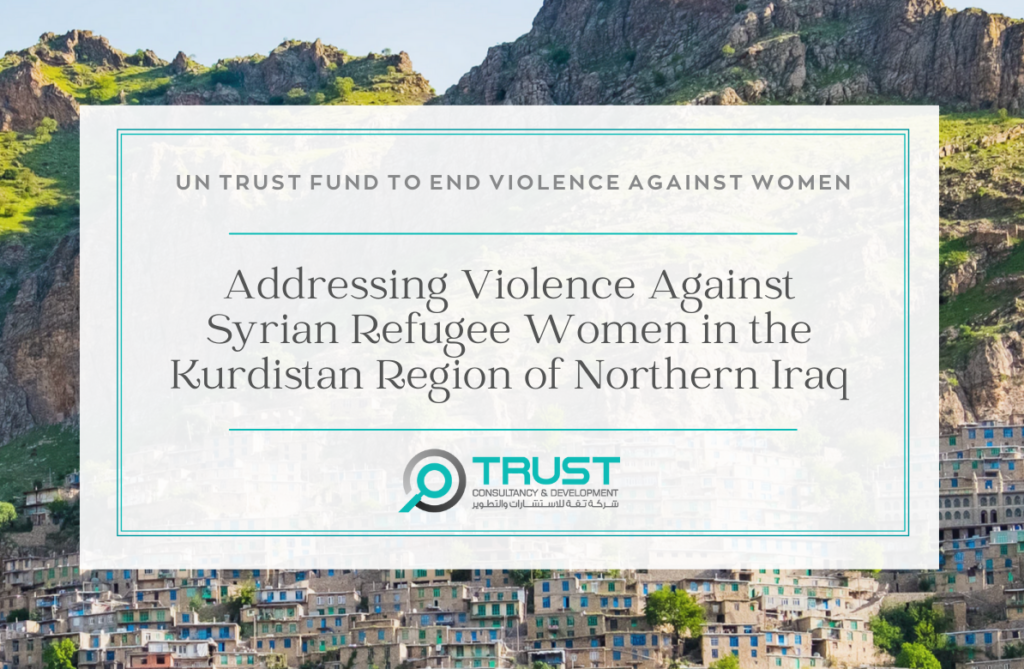As a result of ongoing violence and conflict in Syria, large populations of displaced people from Syria and neighboring regions are living in the Kurdistan Region of Iraq. Displacement has resulted in significant sections of the population being at increased risk of exploitation, violence, and reliance on harmful coping mechanisms. Women are particularly vulnerable as there is evidence of a correlation between gender-based violence (GBV) and displacement. While refugees and IDPs flee seeking safety, their risk of being exposed to GBV may increase at this point. Amplifying reasons include cultural, social, and organizational barriers in both the refugee and host community.
Trust Consultancy and Development was contracted to conduct the evaluation of Women for Women International’s project “Addressing Violence Against Syrian Refugee Women in the Kurdistan Region of Northern Iraq”, implemented for three years in Erbil and Sulaymaniyah governorates. The aim of this project was to empower refugee women and reduce gender-based violence in their communities.
About the Project
Women for Women International (WfWI), along with its partner organization, Warvin Foundation for Women’s Issues, worked to support women affected by conflict including the Syrian refugees, members of the host community and IDPs in the areas of Erbil and Sulaymaniyah governorates of the KRI. Their project “Addressing Violence Against Syrian Refugee women in the Kurdistan region of Northern Iraq “had an activity timeline from March 1st, 2017 to February 29th, 2020. The goal of this project was for refugee women in the Kurdistan Region of Iraq (KRI) to be empowered, self-reliant and safer from Gender-Based Violence in their communities.
Methodology
Trust Consultancy & Development was contracted to perform the final evaluation to review the project cycle from design, through implementation and to close out the project.
The evaluation was based on the OECD/DAC criteria. With the aim to ensure triangulation between sources to increase the validity and accuracy of the findings across the scope of implementation, while ensuring the design accounted for the sensitivity of the relevant issues surrounding violence against women and girls in the crisis context, Trust developed a mixed-methods design of data collection. The initial methodology design planned to include Focus Group Discussions (FGDs) with beneficiaries, but the COVID-19 outbreak in KRI and ensuing restrictions meant that this data was instead collected through KIIs (KIIs).
Keeping in mind the ongoing COVID-19 crisis, immediate steps were taken to monitor and mitigate the impact and the potential risk to any data collectors or respondents. The sample for the KIIs was 44 and male champions, project staff and the key community stakeholders were interviewed to allow for a nuanced examination of issues. Surveys were used as a part of the quantitative methodology and 86 beneficiaries were interviewed. The data collected from the surveys and the KIIs allowed insights regarding the impact and implementation of programming throughout the timeline of the project activity.
Main Findings of the Evaluation
1. The project increased beneficiaries’ ability to influence decision-making and advocate for their own rights.
2. Physical locations for project activities were crucial, providing the foundation for much of the most impactful aspects of the initiative.
3. The engagement of advocates in round-table discussions and other outreach work significantly increased the project’s sustainability.



